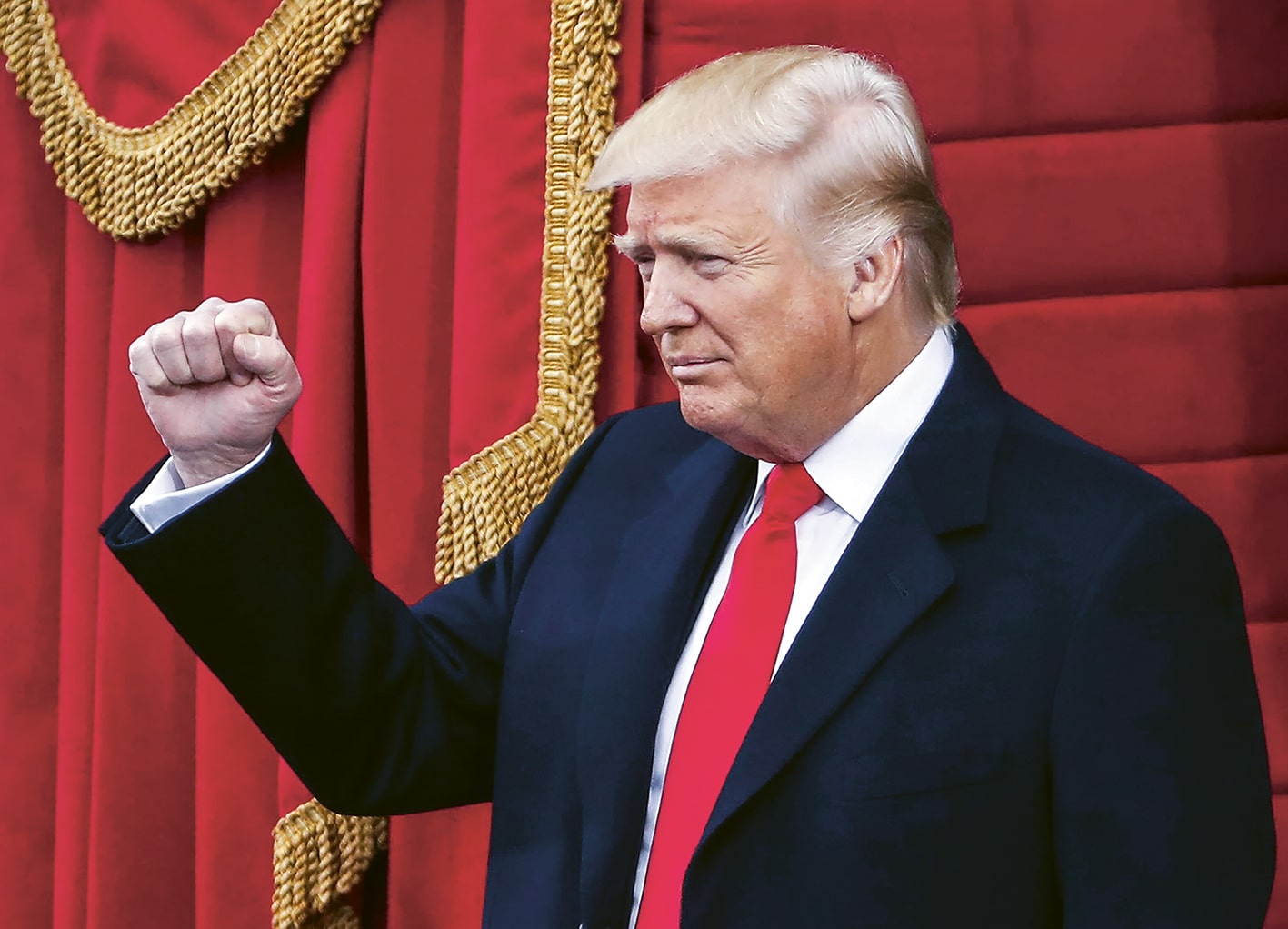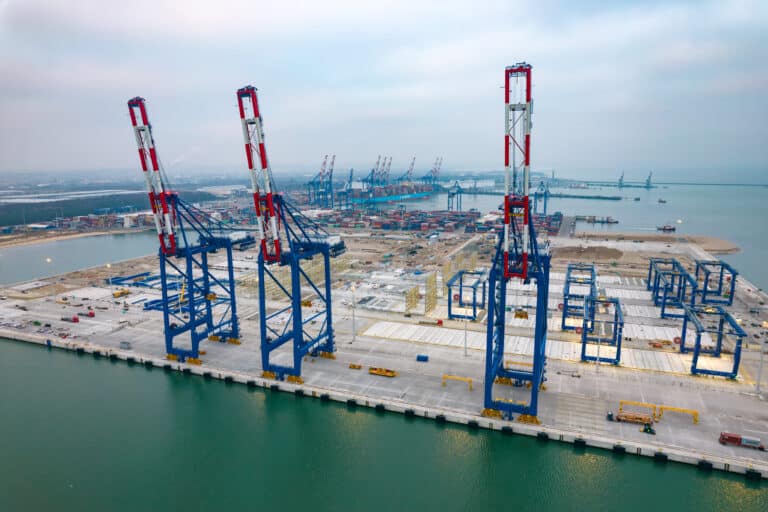How Poles See Prospects
Poles are observing the second term of the 47th president of the United States with some trepidation as deportations start and the risks of tech wars sink in.
However, there could also be benefits for Poland from co-operation with the Republican leader.
So think nearly half of Poles, according to a new poll by United Surveys on behalf of Wirtualna Polska website in the run-up to the inauguration.
Asked how Donald Trump’s presidency will affect Poland’s security, 46.2% of respondents believed the outlook was positive. Among the optimists, 13.9% considered that security would “definitely improve”, while 32.3% thought it would “rather improve”.
If Trump’s first term is anything to go by, the US leader has shown openness to cooperation. He forged excellent relations with Polish President Andrzej Duda during his first term in the US’s top spot, and had favoured high-spending Poland over other Nato members who had spent less on defence.
There’s no indication those relations have waned.
Poland was the only European Union member state to make the top twenty countries for Donald Trump to make contact with upon taking office. On the list made public in late January by the State Department Poland figured as number 15. Even large trading partners like Germany and France did not make the roster, not to mention the UK.
Nothing suggests,relations with the Polish head of state and armed forces chief have waned but as Duda’s term is now entering its last few months, it is Donald Tusk the Polish Prime Minister who will play first fiddle in dealings with the Trump administration.
The two often locked horns when Tusk was head of the European Council, the body assembling government ministers of the member countries. The scuffles over imports of French cheese, whisky, and planes we saw 8 years ago could be small beer compared to what Trump has been threatening.
“Am I going to impose tariffs on the European Union? You want the truthful answer or shall I give you a political answer? Absolutely. The European Union has treated us so terribly,” Trump said.
For the next 6 months Poland holds the presidency of the European Union, and will set the agenda for European policy. And so the EU’s American headache will also be Poland’s problem.
The close relations the Poland has enjoyed with the US could be easily soured as the US plays its policy of divide and rule in Europe.
Donald Trump is threatening to take a hard line against European automotive imports to the US in order to reduce their $200 billion trade deficit with the European Union. Cars from this side of the Atlantic currently face only a 2.5% tariff in the US, while US imports are charged a 10% tariff in Europe. Senior voices in the European car industry are calling for the EU to lower its border charges to avoid the imposition of a 10% charge on imports to The States.
German brands like BMW Mercedes and Volkswagen sell well in the US, with only some of their manufacturing actually taking place in America.
Even although Poland no longer has any of its own car brands on the market, higher tariffs would hurt Poland’s bottom line.
Poland is the motoring workshop of EU car manufacture. Assembly plants for French, German and Japanese manufacturers in the south of the country rub shoulders with a myriad of component factories.
Industry statistics indicate around 10% of the parts on German cars going to the US originate from Polish component factories.
The cure-all for American ill’s — tariffs — may be a over-rated. The attempts at making America great again by encouraging manufacture to return the US and for taxes to be paid to Washington may stumble owing to the complexity of supply lines. Ownership is also international.
US Chrysler, for example, the maker of the quintessentially American brands Jeep and Dodge, was bought by Fiat then merged with the French Group PSA, to then rename itself Stellantis. The new entity moved its headquarters and its tax dollars to the Netherlands.
Designing charges and punishments for international companies without affecting domestic brands will be tough.
But the car industry is not the only area of the economy under threat.
Worse still is the exclusion of Poland and other European countries like Switzerland from the list of coutries with no restrictions on the number of top-of-the-line US-designed silicon chips they can buy.
While France and Spain will be able to forge ahead with the most advanced automation projects, those in the second tier like will be limited to a maximum of 50,000 chips produced mostly by Nvidia.
U.S. Commerce Secretary Gina Raimo named cybersecurity safeguards as the key reason behind the limit.
Observers in Poland say the restrictions do not tally with the the Republicans assertion that the EU needs to take on a greater burden of Nato defence spending.
To be more independent of the States, EU countries like Poland need to invest in the modernization of their defence capability. Poland has been at the forefront of supporting Ukraine’s defence against the Russian full scale invasion over the past three years, and need as much computing power as they can to build that capability.
So bearing in mind the economic threats to Poland from Trump’s tougher line on Europe, what can Donald Tusk do to get the best outcome for Poland?
Poland has to convince the US of the continuing strategic importance of Poland, which has stood strongly against Russian aggression. However, To defend Europe’s eastern flank Poland also has to muster solidarity with European neighbours. Neither of these tasks will be easy.
Poles have faith in Trump’s team taking a sensible approach to negotiations to end the war in Ukraine, and there are indications Trump understands why he couldn’t end it on day one of his presidency.
Peace in Ukraine would bring Poland dividends, as the country will be a key route for imports of goods and know-how to to its neighbour as it rebuilds. But only a lasting peace, with safeguards for Ukrainians.
Another trying aspect of this new era of Polish US relations is Trump’s expulsion of illegal refugees, which is now dividing Poles.
The overtly strong-arm policy of sending home people without the right papers, does not get support across the board here. The problem is that among the 10 million US residents identifying as Polish, as many as 30,000 have overstayed their visas and could be sent home. Even Polish right wingers are shocked.
Only 9.1% of respondents to a recent poll in Rzeczpospolita daily strongly agree that the illegal immigrants from Poland should be sent home. Meanwhile 25.2% answered “rather yes”.
The Polish Embassy in Washington says that returnees “would be welcomed in Poland”.
However, the sight of plane loads of evicted long-term residents returning to Poland could blight relations between the countries.







